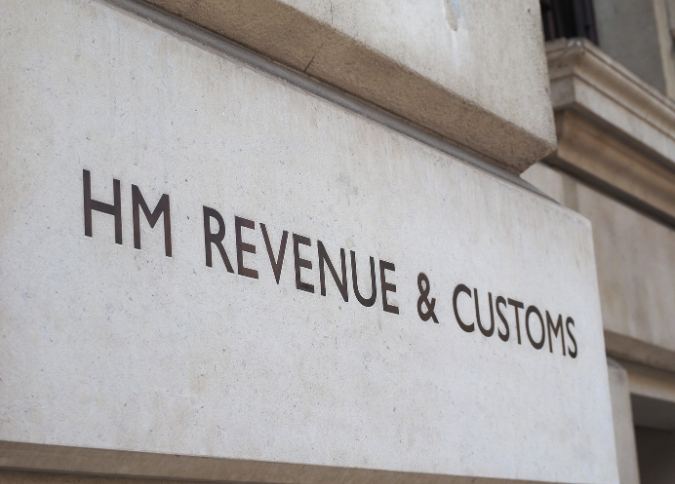How Much Tax Do You Pay When Selling a Business in the UK?
- TBA

- Oct 31, 2025
- 4 min read
In recent years, the UK economy has faced multiple challenges, including high inflation, rising interest rates, supply chain pressures and increasing energy costs.
Small and medium-sized enterprises (SMEs) have been particularly vulnerable, with more cases of bankruptcy, liquidation and restructuring — while some business owners are choosing to sell their companies altogether.
If you are planning to sell your company in the UK, whether transferring all your shares or disposing of part of the business assets, the key question you’ll face is: how much tax will you need to pay?
This does not only involve Capital Gains Tax (CGT) but also requires careful planning around available reliefs and the compliance of the transaction structure.

Taxes payable when selling a business
When selling a company or business in the UK, the main tax involved is Capital Gains Tax (CGT).
For the 2025/26 tax year, each individual has a £3,000 annual CGT allowance, with the excess taxed at the following standard rates:
18%: for gains within the basic income tax band
24%: for gains above the basic rate threshold
Following the Autumn Budget 2024, the UK government announced significant changes to CGT rules effective from 2025, including adjustments to the preferential rates and lifetime limits of Business Asset Disposal Relief (BADR) and Investors’ Relief (IR).
For business owners and investors planning to sell or exit a company, understanding these updates and how to qualify for reliefs is crucial for efficient tax planning and compliant reporting.
Business Asset Disposal Relief (BADR)
Introduced in 2008 and formerly known as Entrepreneurs’ Relief before 2020, BADR was designed to help reduce the CGT burden when selling a business.
It replaced the previous ‘taper relief’ system with a fixed 10% CGT rate, preventing business owners from being overly penalised by high tax bills upon selling their companies.
As of September 2025, the lifetime limit for BADR remains at £1 million per individual. Any gains above this threshold are taxed at the standard CGT rate.
When BADR was first launched, its preferential rate was fixed at 10%. However, under reforms introduced in the Autumn Budget 2024, this rate will gradually increase:
From April 2025: 14%
From April 2026: 18%
This means that future disposals of businesses or shares will attract a higher tax cost, making early planning even more important.
Conditions for BADR eligibility
To qualify for BADR, the following conditions must be met:
Ownership period: You must have owned the business for at least 24 months before the sale (‘qualifying period’).
Status requirement: During that time, you must have been a sole trader, company director, company secretary, or employee.
Shareholding: For share disposals, you must hold at least 5% of the company’s share capital and voting rights.
Qualifying disposals: Includes the sale of all or part of a business, company shares, or remaining assets after cessation.
Cessation rule: If the business has ceased trading, the sale must occur within three years of cessation.
Exclusions: Non-trading property disposals do not qualify.
Spouse/partner rule: If the business is jointly owned by a couple or civil partners, each can claim BADR separately if they meet the qualifying conditions.

Investors’ Relief (IR)
Investors’ Relief (IR) is a separate tax benefit aimed at external investors in early-stage businesses who are not involved in day-to-day operations, similar in concept to BADR but designed for a different group.
The lifetime limit for IR was reduced from £10 million to £1 million on 30 October 2024, and the tax rate will also rise in stages:
From April 2025: 14%
From April 2026: 18%
To qualify, applicants must meet the following conditions:
Shares must be held for at least three years continuously.
The investee company must be a trading company or the holding company of a trading group.
The investor must not be involved in company management.
Shares must not be listed on a main stock exchange (AIM-listed shares are eligible).
Shares must be newly issued shares.
How and when to claim BADR or IR
To claim either BADR or IR, you must submit the claim by the first anniversary of 31 January following the end of the tax year in which the disposal took place.
For example, for disposals made in the 2025/26 tax year, the deadline for claims is 31 January 2028.
You can claim via the Capital Gains Tax section of your Self Assessment tax return, or by submitting the HS275 form directly to HMRC.
Some advice from TB Accountants
With the gradual increase in the preferential tax rates for both BADR and IR, business owners and investors are facing higher overall tax costs.
Before selling a company, transferring shares or exiting an investment, it’s important to carefully plan the timing of your disposal to take advantage of the current lower rates.
Efficient use of available tax reliefs can have a direct impact on your post-sale returns.
Given the complexity of UK company capital gains tax rules and the interaction with other reliefs and reporting requirements, it’s highly advisable to seek professional advice from a qualified accountant or tax consultant before making any major decisions.

Why TB Accountants?
Professional Assurance: Our team includes ACA members and ACCA-certified professionals, delivering services to the highest industry standards.
Responsive Service: We respond to your inquiries within 24 hours, ensuring efficient communication across time zones.
Multilingual Support: Services available in English, Mandarin, Cantonese, Japanese, French, German, Spanish, Italian, Turkish, and more.
Trusted by Clients Worldwide: Consistently praised by global clients for proactive, professional, and reliable accounting and tax support.

For individuals and businesses looking for UK taxation services, use our contact form to get in touch for more information.
Get in touch with us at info@tbagroup.uk or for a free one-to-one consultation.



